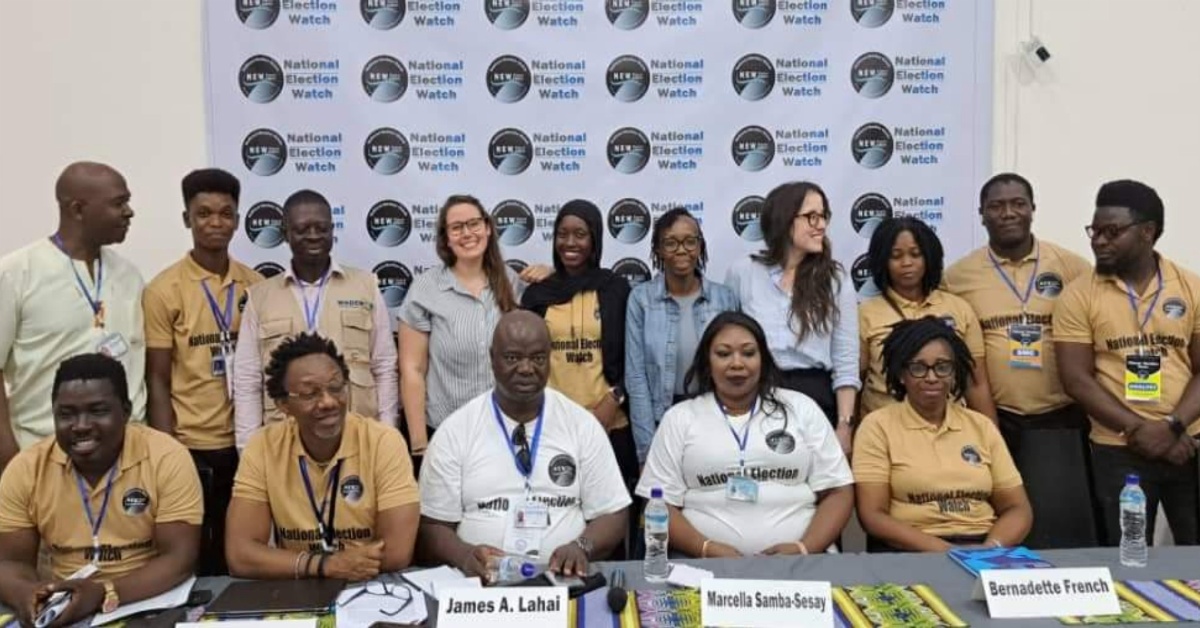The Electoral Support Network of Southern Africa (ESN-SA) has expressed deep concern regarding the increasing use of social media platforms to spread hate speech against National Election Watch (NEW), a respected domestic observer group in Sierra Leone.
ESN-SA, a regional network comprising fifteen civil society organizations dedicated to promoting fair and transparent elections within the Southern African Development Community (SADC) region, has declared its unwavering solidarity with NEW.
Recognizing the crucial role played by NEW in monitoring elections and safeguarding their transparency and credibility, ESN-SA has emphasized the significance of citizen and international election observers as human rights defenders. This recognition stems from the United Nations Special Rapporteurs’ acknowledgement of the vital contributions made by election observers in upholding human rights and ensuring freedom of assembly and association.
In a statement issued on October 27, 2022, the UN Special Rapporteurs urged all United Nations Member States to afford election observers the same protections provided to other human rights defenders. The statement also called upon Member States to take necessary measures to prevent any form of violence, threats, retaliation, discrimination, or pressure directed at election observers.
ESN-SA has appealed directly to Sierra Leone’s Independent Electoral Commission, urging the commission to uphold transparency and accountability to the citizens.
Additionally, ESN-SA has called upon the people of Sierra Leone to remain calm and peaceful during this period of anticipation while awaiting the announcement of the election results, which are scheduled to be released by the electoral authority on June 24, 2023.
National Election Watch (NEW) has recently released its comprehensive findings regarding the credibility of Sierra Leone’s presidential, parliamentary, and local council elections held on June 24th, 2023.
The observer group deployed a remarkable force of 6,000 observers across the country, including 750 specially trained individuals. Utilizing the Process and Results Verification for Transparency (PRVT) methodology, NEW meticulously assessed the quality of the election process and verified the accuracy of the official results announced by the Electoral Commission of Sierra Leone (ECSL).
According to NEW’s assessment, the candidate representing the Sierra Leone People’s Party (SLPP) should receive a vote share ranging from 47.7% to 53.1%, whereas ECSL’s official result indicates a vote share of 56.1% for the SLPP candidate. Similarly, NEW’s analysis suggests that the candidate from the All People’s Congress (APC) should garner a vote share between 43.8% and 49.2%, while ECSL’s official result reports a vote share of 41.2% for the APC candidate.
However, on Tuesday, the Chief Electoral Commissioner, Mohamed Kenewui Konneh, announced the re-election of Julius Maada Bio, the SLPP candidate, with a vote share of 56.17 percent. Bio’s main rival, Samura Kamara of the APC, came in second with a reported vote share of 41.16 percent. In response, Kamara swiftly rejected the election results, citing concerns about the lack of transparency and instances of abnormalities observed at tabulation centers.
To address such disputes, the Chief Electoral Commissioner has emphasized that any eligible citizen who lawfully voted has the right to submit challenges to the Supreme Court within seven days of the declaration of the election results. This process aims to provide a fair and legal avenue for resolving election-related concerns.
Meanwhile, the US election observers, the Carter Center has expressed confidence in the rigorous observation and verification methodology of the National Election Watch (NEW), which reported discrepancies between its own data and the ECSL results, particularly in terms of voter turnout and recorded votes for the presidential candidate of the Sierra Leone People’s Party (SLPP).
“The Carter Center is familiar with and has great confidence in NEW’s rigorous observation and verification methodology, and therefore is concerned that the ECSL’s results do not correspond with NEW’s data,” they stated.
The Carter Center has been closely monitoring the tabulation process throughout the country and has also raised serious concerns about the lack of transparency and instances of irregularities observed at tabulation centers.


 3 Comments
3 Comments 









SLPP nor retreat nor surrender 👉🇸🇱
Which elections is 100%? For say na dat we for dae pan again? How honest is any of them. It should be working time now. Those corrupt people, should all be prosecuted.
President Bio many of us loved and voted u. Not to make Sierra Leone heaven. But to clean mama salone. All those baseless challenges is not for any fairness, but for them hide the money they received in the name of people, and fail to do just that.
Our ACC is one the best in world. Let us meet them in court.
If it is any thing to go by then God above all will surely make a way